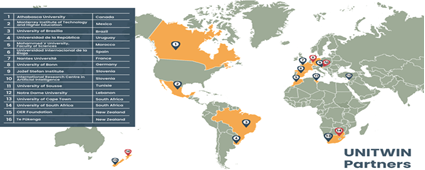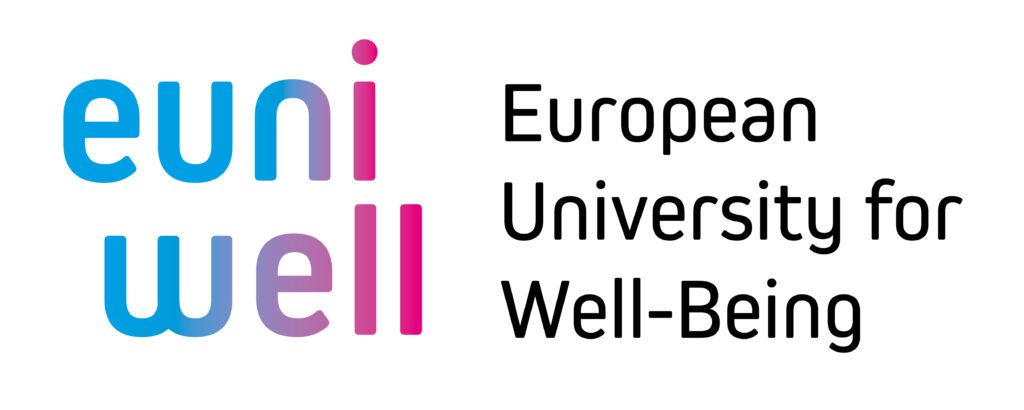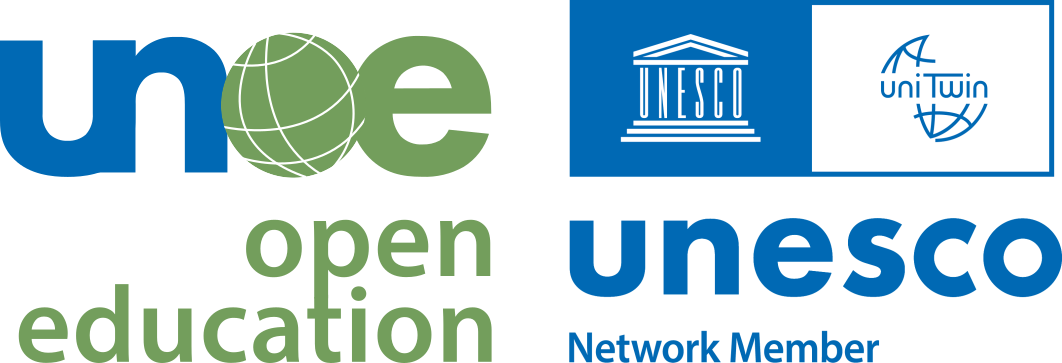On 26 June, launch of the Unitwin Open Education Network (UNOE).
The launch will take place exclusively online, on 26 June at 3pm (CEST, Nantes time).
To register (free of charge) and follow the event,
https://tinyurl.com/UNOE-launch

Programme
Protocol
Moderator: Colin de la Higuera, UNESCO Chair in Open Educational Resources and Artificial Intelligence (RELIA) at Nantes University
- Inauguration by Carine Bernault, President of Nantes University
- Speech by Ms Stefania Giannini, Assistant Director-General for Education at UNESCO
- Speech by Mr Tawfik Jelassi, Assistant Director-General for Communication at UNESCO
- Pre-recorded speeches by other network rectors
Guest lecture
- François Taddei, President of the Learning Planet Institute (LPI) and holder of the UNESCO Chair in the Science of Learning.
- “Reimagining Universities for Sustainable Futures: Nurturing Open Education and Collective Responsibility.
Panel
Moderator: Mr Colin de la Higuera
Discussion on the 4 themes of the UNOE network:
- Community building: Ms MPine Makoe, Executive Dean of the College of Education and Professor at the University of South Africa (UNISA)
- Research: Ms Glenda Cox, UNESCO Chair in Open Education and Social Justice, The University of Cape Town, South Africa
- Education: Ms Lilia Cheniti, Associate Professor and researcher in computer science at the UNESCO Chair in Open Educational Resources at the University of Sousse, Tunisia
- Software: Tel Amiel, UNESCO Chair in Distance Education, University of Brasília, Brazil
UNOE in 5 questions
- What is a UNITWIN network?
UNITWIN is UNESCO’s internal organisation responsible for its programme of Chairs (currently around a thousand) and Networks. A Unitwin Network is a 4-year project aiming to make a global contribution to the development of a given topic. In this case open education. The UNOE network was created with UNESCO to promote open education.
2. Who can you find at UNOE?
UNOE is built around existing UNESCO Chairs in open education. It is a global network with partners in America, Africa, Asia, Oceania and Europe. Nantes University coordinates this network.
UNITWIN network partners
- Athabasca University (Canada)
- Tecnológico de Monterrey (Mexico)
- Universidade de Brasilia (Brazil)
- Univerdidad de la República (Uruguay)
- Nantes University (France)
- Rheinische Friedrich-Wilhelms University Bonn (Germany)
- IRCAI Center (Slovenia)
- Jožef Stefan Institute (Slovenia)
- Universidad Internacional de La Rioja (Spain)
- Mohammed V University, Rabat (Morocco)
- University of Sousse (Tunisia)
- Notre-Dame-de-Louaizé University (Lebanon)
- UNISA, University of South Africa
- University of Cape Town (South Africa)
- OER Foundation (New Zealand)
- Te Pukenga (New Zealand)

3. What are the themes and issues addressed by this network?
The network has set itself 10 objectives in 4 main target areas:
Community building and support
- To facilitate community building and training
- To support teams in countries with limited engagement with Open Education and OER
- To cooperate closely with UNESCO, existing Chairs and academic institutions by engaging in joint research on issues of common interest
Search
- To generate and disseminate high-quality research documents in the field of open education
- To commit to shared research programmes
- To promote initiatives and research projects at the intersection of open science and open education
Education
- To share and cooperate on curricula, courses and educational materials related to open education
- To develop curricula and academic research that will help to raise awareness and increase adoption of the principles of open education.
Software
- To develop, promote and make available free and open tools (FLOSS) for education
- To study the roles that artificial intelligence and crowdsourcing can play in the design, dissemination and use of open education and OER.
4. Why attend the launch?
The event promises to be exciting on three counts:
Firstly, the quality of the representation proposed by UNESCO testifies to the importance of the issues at stake, and no doubt the responsibilities of the network. If you want to find out more about the reasons why open education is so high on UNESCO’s agenda, but also on that of Nantes Université, it should be interesting.
Secondly, François Taddei is one of today’s most original thinkers. He places enormous emphasis on education in his non-utopian vision of tomorrow’s world.
Finally, 4 personalities representing very different regions of the world will be testifying in support of the network’s multidisciplinary programme.
5. Is the network reserved for the few institutions that have launched it?
The network is one of the instruments of a global approach to reflection and action. But we do hope to receive support on the issues we are tackling, and we can be sure that opportunities for collaboration will be put forward very soon!

